Last year, Malaysia introduced new social media licensing requirement in an attempt to combat scams and to create a safer online environment for Malaysians. Applicable to social media and instant messaging platforms with at least 8 million Malaysian users, the new regulation was supposed to keep big digital platforms in check and to ensure that they are more proactive in protecting users from online harm.
After more than 3 months since the regulation took effect on 1st January 2025, it seems that Meta is showing defiance as it continues to allow Facebook scam ads impersonating Malaysian public figures and popular brands. In the last 48 hours, we managed to capture repeated scam ads on our Facebook timeline and this is despite repeatedly flagging them using the platform’s report function.
Meta continues to allow scam ads impersonating public figures and brands in Malaysia
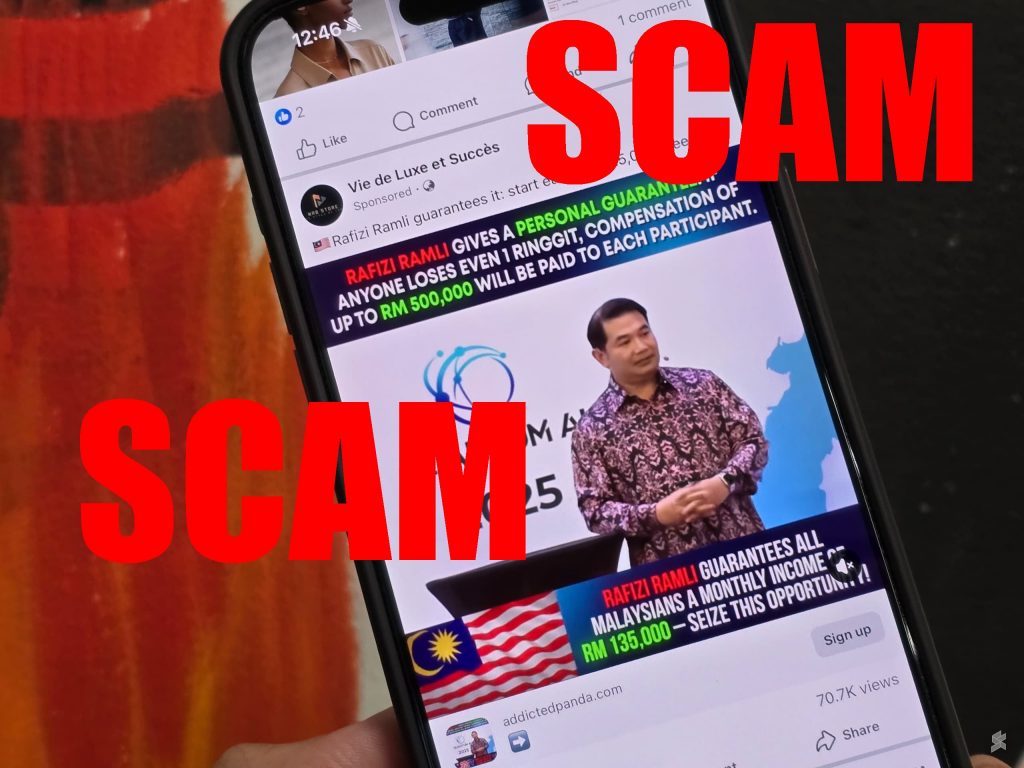
Similar as what we’ve reported previously, there are several scam ads running on Facebook which promoted “get-rich-quick” and fake investment programs. Several of these ads misuse the faces of our public figures which include Prime Minister Dato Seri Anwar Ibrahim and Minister of Economy Dato Seri Rafizi Ramli.
As shown below, there are also scam ads misusing identities of business figures and celebrities including Tan Sri Vincent Tan, Robert Kuok and Dato Sri Siti Nurhaliza.
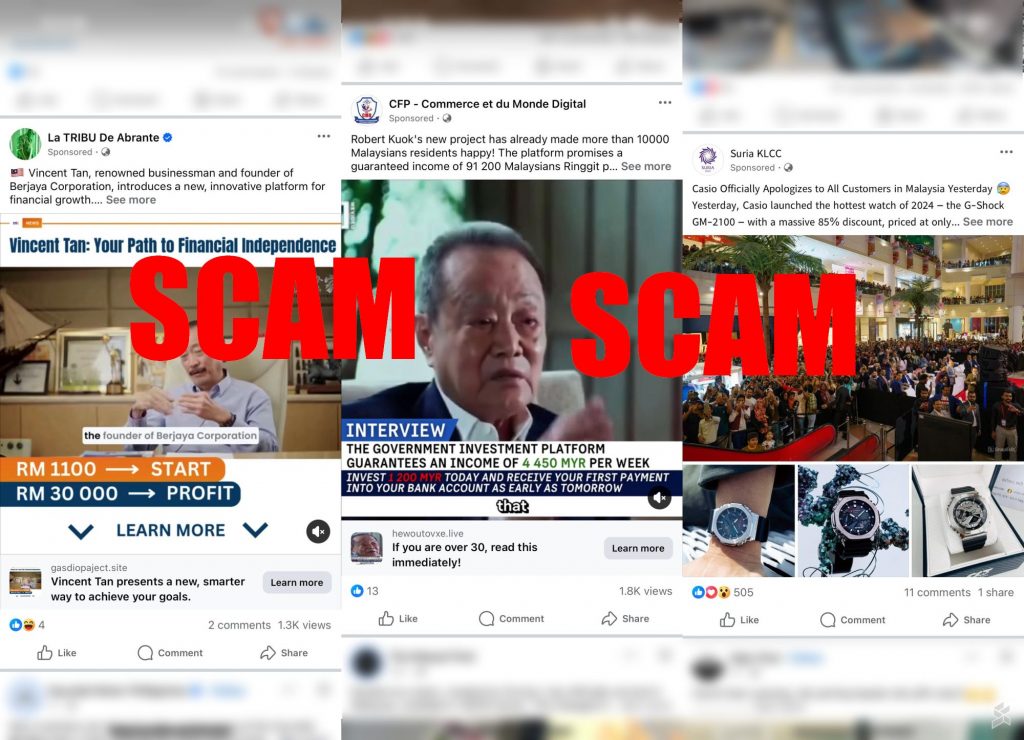
As usual, there are dozens of fake eCommerce ads promoting products with heavy discounts for various brands including Casio, Huawei, Apple and Samsung. These ads may look convincing as the displayed URLs in the ads were manipulated to look like legit websites. It is only when you click through, you’ll noticed that the URL is actually different.
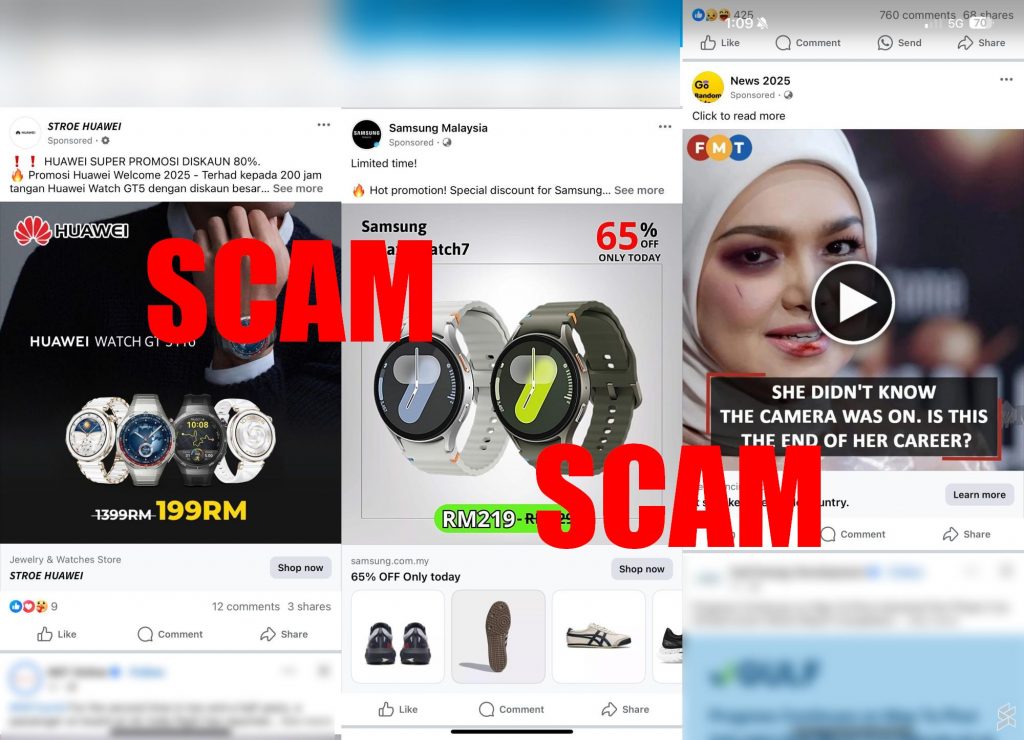
As we’ve said before, all of these scam ads could have been prevented in the first place if Meta conducts basic checks and due diligence on new advertisers. After all, most of these scam ad campaigns are managed from newly created Facebook pages with very few likes which could have easily raised alarms for any moderation systems.
Meta with its AI capabilities would have definitely be able to detect and prevent these scams if they wanted to. With such blatant ads being allowed so regularly, it is clear that these platforms are prioritising ad revenues over user safety.
In addition, Facebook still continues to allow online gambling/online casino ads on its platform, which are a clear violation of Malaysia’s regulation.
Meta still hasn’t obtain its social media “licence” in Malaysia
According to the Malaysian Communications and Multimedia Commission’s (MCMC) list of Application Service Providers (ASP), it appears that only TikTok and WeChat have obtained the required licence to operate in Malaysia. Both Meta (Facebook, Facebook Messenger, Instagram, WhatsApp) and Google (YouTube) are not listed.
Applicable platforms running without the required ASP licence are considered illegal under the new social media regulation.
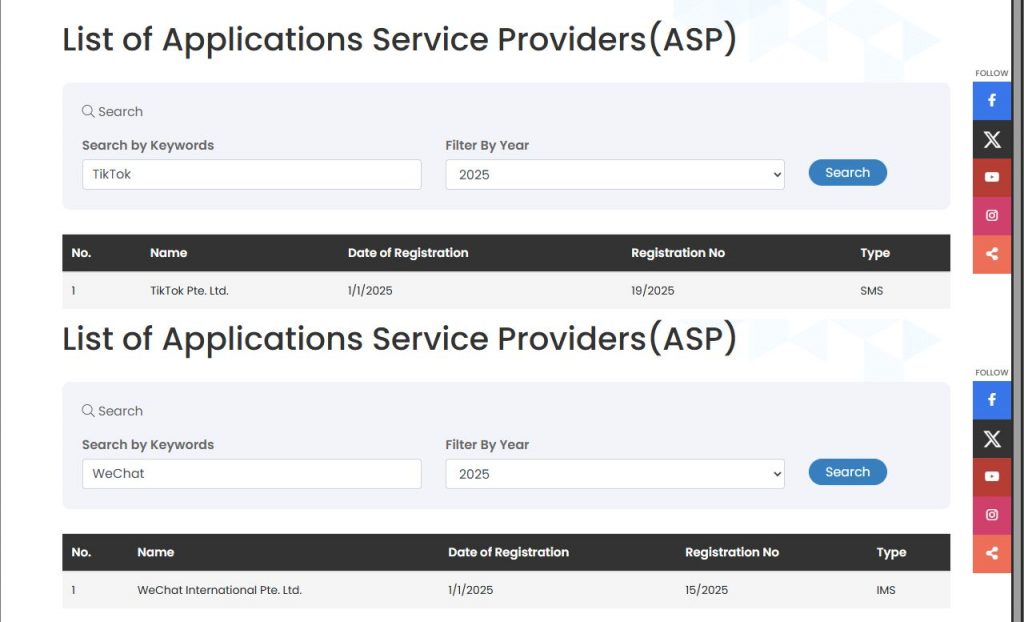
When the regulation was introduced, the MCMC revealed that action under Section 126 of the Communications and Multimedia Act (CMA) 1998 will be taken against any applicable service providers that continue to operate without a licence from 1st January 2025. If convicted, the non-compliant platform can be fined up to RM500,000, or face imprisonment up to 5 years, or both. Further fine of RM1,000 per day can be slapped upon the platform if they continue with the offence after conviction.
So far three months have passed and we have yet to see any severe action taken against non-compliant social media platforms.
Malaysia should follow Singapore’s lead to introduce mandatory verification of advertisers
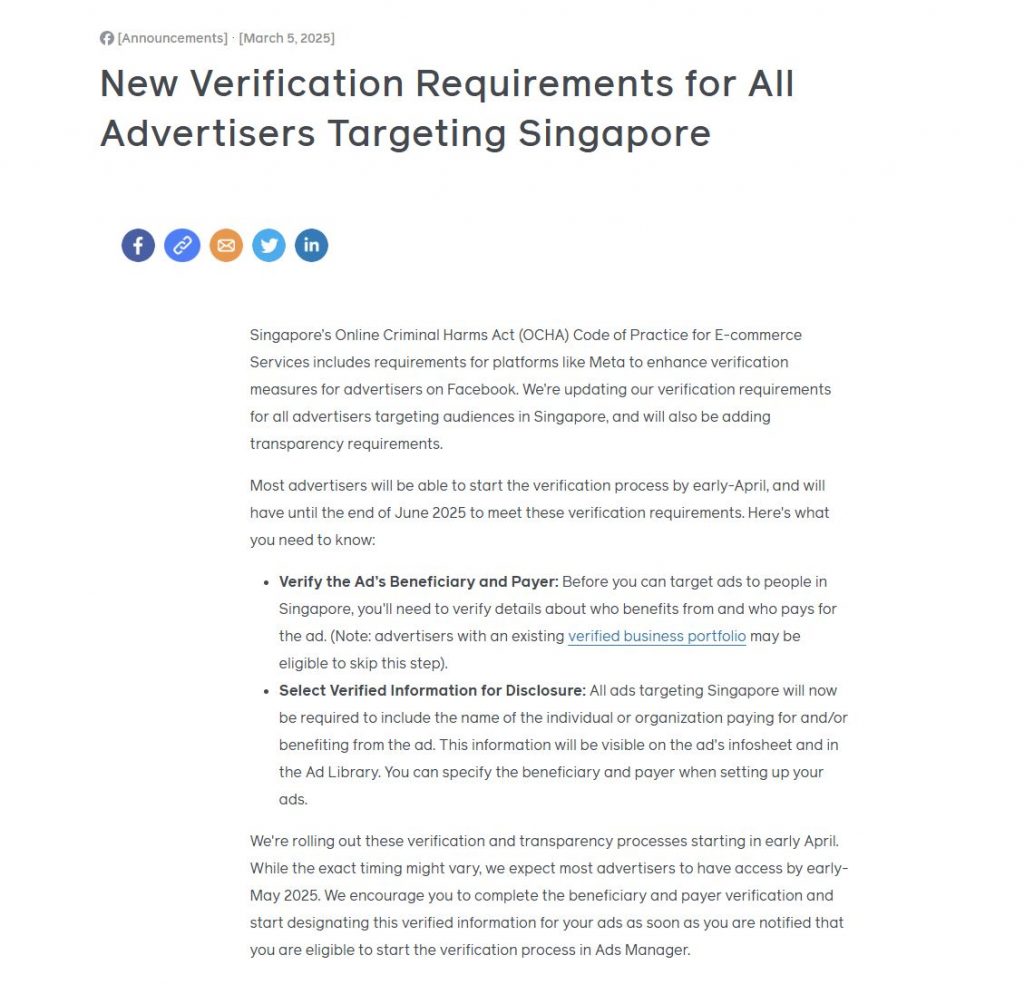
Meanwhile in Singapore, the authorities have passed the Online Criminal Harms Act (OCHA) which targets online content used to facilitate scams and malicious cyber activities. One of the requirements is to ensure all advertisers on Facebook are verified against government-issued records before they can run any ads targeting Singapore users.
Meta seems to comply with the Singapore government’s directive as they have issued a notice that they are updating verification requirements for all Facebook advertisers targeting audiences in Singapore. The social media platform has also added transparency requirements to disclose the name or the individual or organisation paying for the ads.
The move by the Singapore government is a step the right direction to hold platforms such as Meta accountable for the ads it allow on its platform. This means Singaporeans users are only allowed to view ads from verified advertisers, making the platform more trustworthy and free from scam ads.
It is time for Malaysia to impose similar mandatory advertiser verifications for social media platforms if it wants to tackle scam ads effectively. Meta which made RM2.5 billion from Malaysians in 2023 should be held accountable to keep its users safe and the one time verification process would drastically cut down scam ads from newly created Facebook pages with little to no followers.
If these social media platforms don’t want to play ball, Malaysia needs to consider harsher actions which may include blocking or banning of the platforms itself. These platforms have made tons of money from both scam and legitimate ads, while Malaysians continue to get screwed over. It is time to hit them back where it hurts and for them to respect and comply with our regulations.
Scams continue to pose a major security and economic threat to Malaysia. The State of Scam Report 2024 estimated that Malaysia encountered losses of RM54.02 billion to scams which is equivalent to 3% of the nation’s GDP.


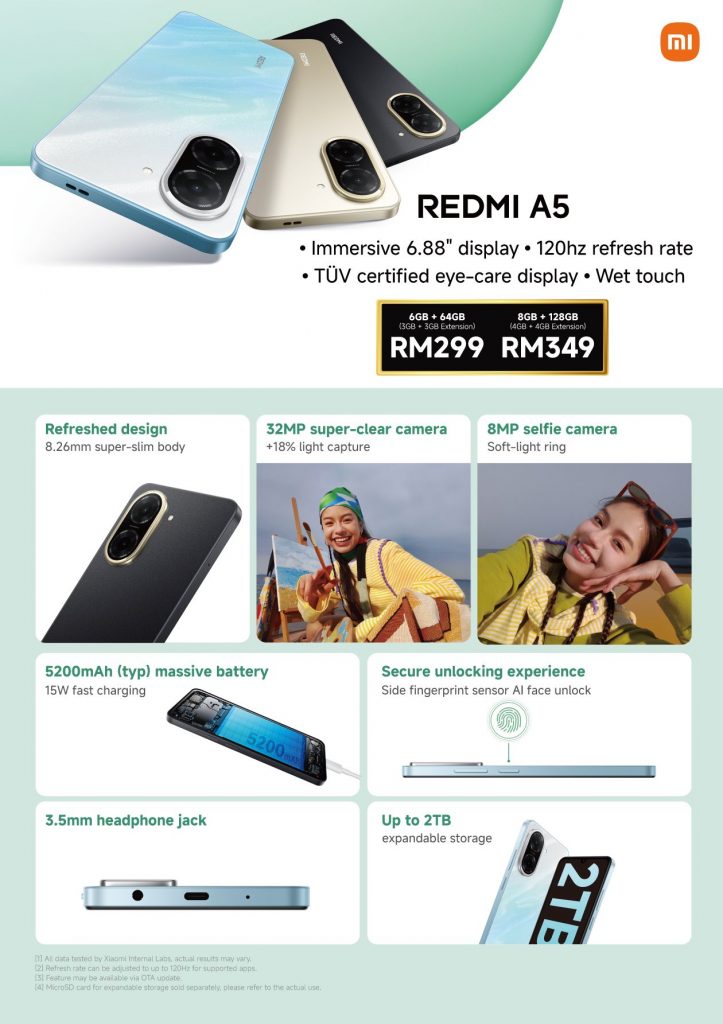
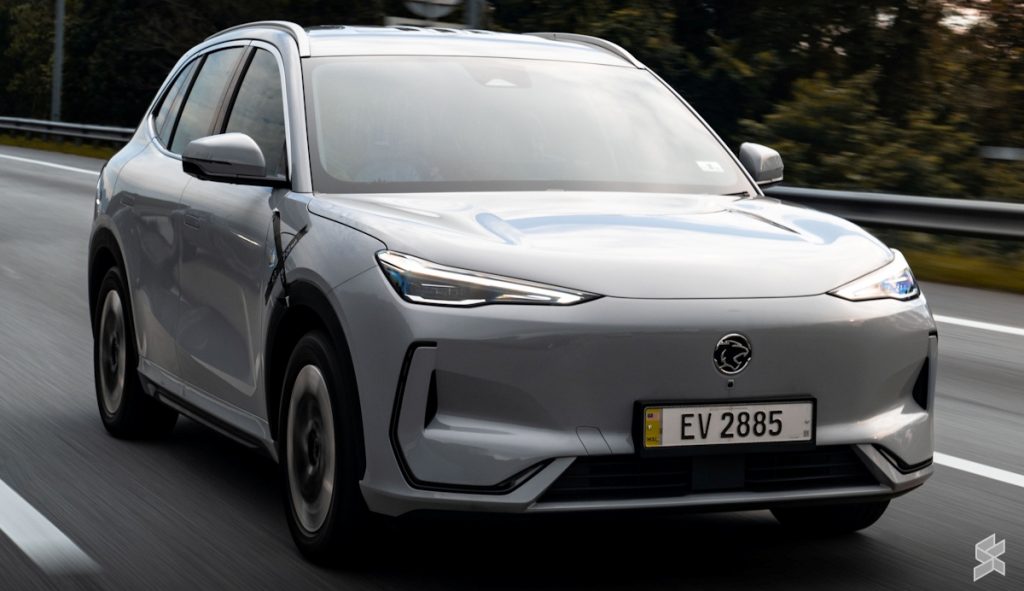
0 comments :
Post a Comment